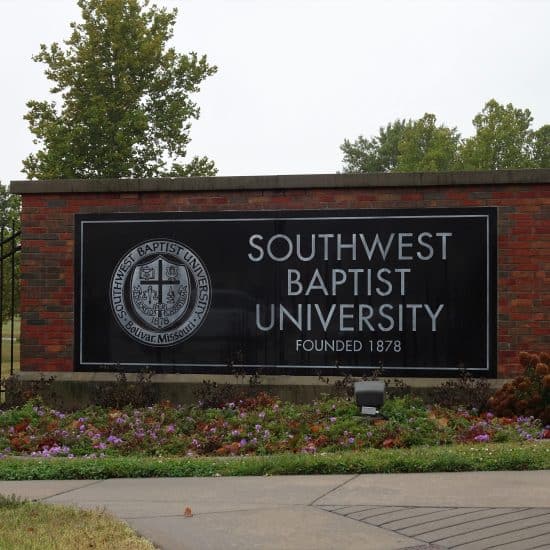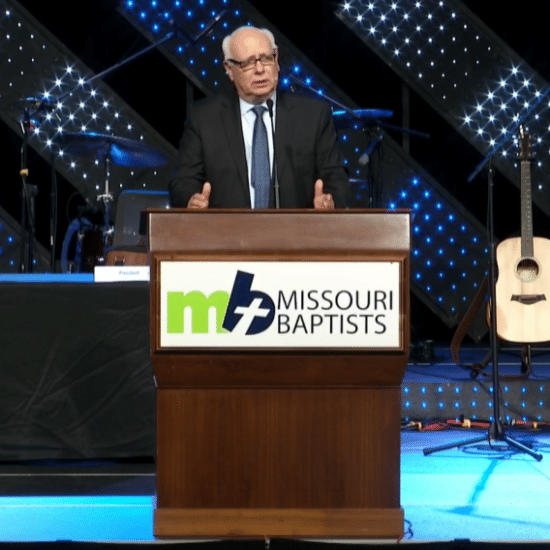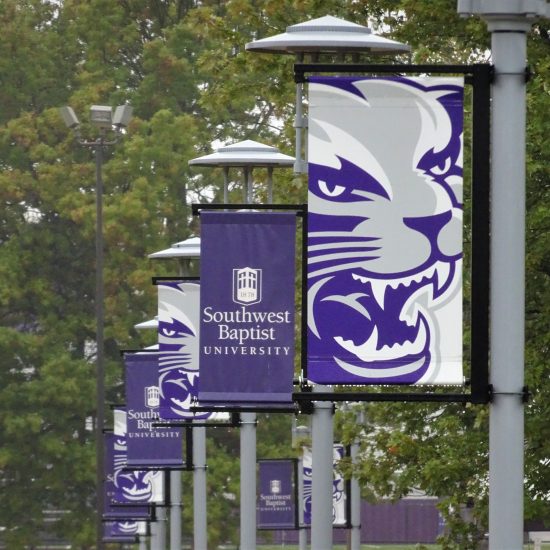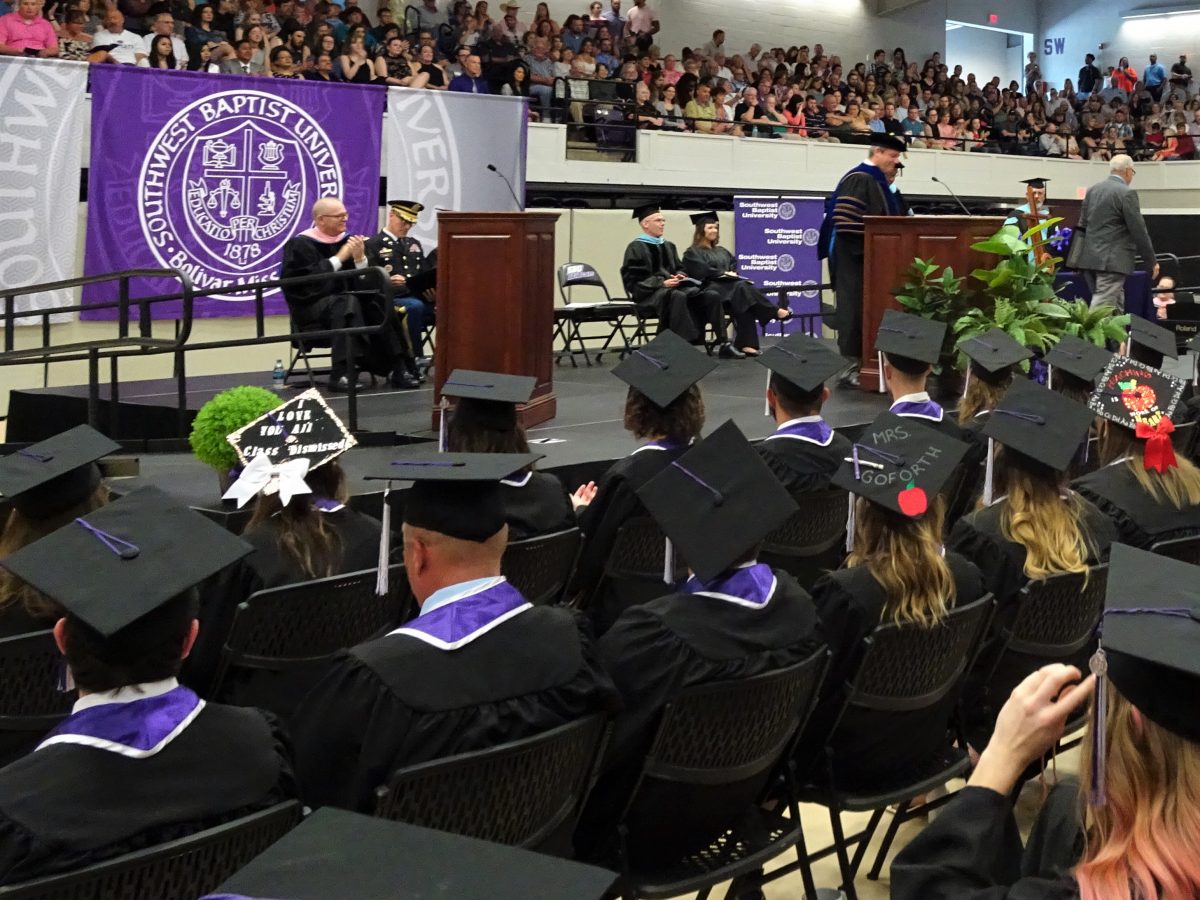
Amid a two-year controversy over control and theology at Southwest Baptist University, trustees for the school in Bolivar, Missouri, recently denied tenure or promotion applications from five faculty members in various departments. The unusual action could raise new concerns for the school already facing an inquiry by its accreditation body.
The trustees, elected by the Missouri Baptist Convention in a process that sparked controversy in recent years, recently denied tenure to three faculty members and promotion to two others. Word&Way has learned the identity of the five individuals, but is not naming them.
Although the faculty in the religion department have been the targets during the last two years of controversy, the tenure and promotion denials hit faculty in four academic areas. All three denied tenure come from the Division of Behavioral Sciences, which includes the criminal justice, psychology, social work, and sociology majors. One of those denied tenure had recently received the school’s top teaching award.
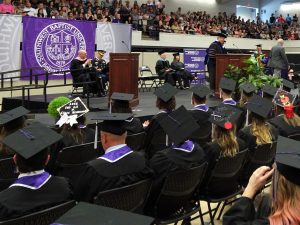
Graduation ceremonies at Southwest Baptist University on May 19, 2018. (Brian Kaylor/Word&Way)
According to the faculty handbook, denying tenure is also a decision for “termination.” The faculty member is given one more year to teach at the school, but then is out of a position. The three tenure denials represent one-quarter of the faculty in the Division of Behavioral Sciences.
Each candidate for tenure or promotion had already been approved and recommended at all previous levels, including their division head, dean, and provost. Denials at the trustee level after passing all those levels are rare, with individuals familiar with SBU saying the five denials this year would total more than the school has seen in decades combined.
The faculty handbook notes that after a candidate has been approved and recommended by the provost, “the president who will make the final recommendation to the Board of Trustees for consideration at their winter meeting.” It adds, “The decision by the Board of Trustees is communicated to the individual by the provost’s office no later than two weeks after the Trustee’s meeting.”
This year the trustees conducted interviews with the candidates, which sparked concerns among faculty even before the denial decisions were handed down.
In addition to the three professors who were denied tenure and terminated, another professor will see his position end. Last year, SBU decided to terminate its philosophy program and not renew the contract of its tenured philosophy professor at the end of this academic year.
Accreditation Concerns
The tenure and promotion denials come as SBU already faces an inquiry by its accrediting body, the Higher Learning Commission. In December, the HLC voted to conduct a focused visit at SBU in May, a move that automatically changed SBU’s accreditation path.
The investigation into SBU started after a complaint filed Aug. 21 by Russell Jackson, a St. Louis attorney who graduated from the school in 1987. His complaint included several citations to Word&Way reports.
The initial complaint to the HLC raised concerns that “the school’s academic integrity is about to be irrevocably sacrificed by trustees who have conflicts of interest and are about to breach their fiduciary duty to the university.” In particular, the complaint pointed to efforts to remove religion professors and MBC demands for new governing documents.
Since the complaint’s filing, the new governance documents for the school were approved, which included a number of changes like naming the MBC as the sole corporate member to give the MBC greater institutional control. Additionally, SBU President Eric Turner, who clashed with MBC leaders over the direction of the school, resigned since the HLC’s inquiry started.
The tenure and promotion denials might add to those concerns. Professors denied tenure at other schools have filed complaints with accreditation bodies, and have sometimes filed lawsuits against their schools.
The HLC’s accreditation standards include criteria focused on ethical behavior by the board. Criterion 2.A. reads, “The institution establishes and follows policies and processes to ensure fair and ethical behavior on the part of its governing board, administration, faculty, and staff.” That includes, subpoint 1 of that criterion adds, operating “with integrity in its financial, academic, human resources, and auxiliary functions.”
Other criteria include protections for faculty rights. Criterion 1.C.3 notes, “The institution fosters a climate of respect among all students, faculty, staff, and administrators from a range of diverse backgrounds, ideas and perspectives.” And Criterion 2.D. reads, “The institution is committed to academic freedom and freedom of expression in the pursuit of truth in teaching and learning.”


